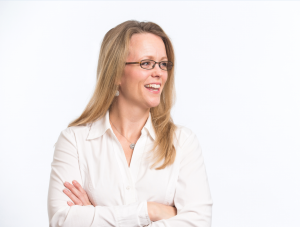Faculty Spotlight: Cheyanne Scharbatke-Church
Returning to our Faculty Spotlight series, today’s post comes from Cheyanne Scharbatke-Church, lecturer in Human Security. Prof. Scharbatke-Church teaches a series of intensive short-term classes, including Design and Monitoring of Peacebuilding and Development Programming, Evaluation of Peacebuilding and Development for Practitioners and Donors, and Advanced Evaluation and Learning in International Organizations.
 Colleagues sometimes ask me why I stopped working in peacebuilding to be an evaluator. I respond by asking: how is determining the dynamics of a conflict and its actors, and the ability of an intervention to catalyze change, anything but peacebuilding? Understanding how change happens in complex conflict and fragile affected states, be it on issues related to corruption, rule of law, or conflict, has been the focus of my career as a practitioner-scholar. In my opinion, this is the crux of all forms of international development and peacebuilding.
Colleagues sometimes ask me why I stopped working in peacebuilding to be an evaluator. I respond by asking: how is determining the dynamics of a conflict and its actors, and the ability of an intervention to catalyze change, anything but peacebuilding? Understanding how change happens in complex conflict and fragile affected states, be it on issues related to corruption, rule of law, or conflict, has been the focus of my career as a practitioner-scholar. In my opinion, this is the crux of all forms of international development and peacebuilding.
As a practitioner-scholar I purposefully straddle the theory and practice communities. The issues, challenges, or questions I identify on the ground when working with partners such as the UN Peacebuilding Support Office (PBSO), ABA Rule of Law Initiative (ABA ROLI), or the International Development Research Centre (IDRC) directly feed my research and, by extension, my teaching. Real cases are always part of class discussions to bring to light the complexity of issues. In addition, through my organization Besa: Catalyzing Strategic Change, students have the opportunity to engage in projects that are committed to catalyzing significant change on strategic issues.
Equally, my academic work influences my practice as it enables me to not only stay current, but to critically assess the potential value of theory against real challenges. For instance, I am leading a project, funded by the Department of State, that seeks to operationalize new approaches to corruption in the justice sector in conflict affected states. The impetus for the project came from teaching a course on Corruption and Conflict where it was clear that the proposed solutions in academia were not bounded by the practical realities of the contexts in which these responses need to be implemented.
The courses that I teach at the School are unique in a number of ways, primarily because they emphasize skills development and are offered in a three-part series taught in an intensive format. Working daily with students who are exclusively committed to the course creates a unique classroom experience characterized by camaraderie and a dedication to understanding how and why change happens. This camaraderie and engagement often lead to long-term relationships with students.
As a result I am fortunate to have the opportunity to continue to work with and learn from the alumni of my classes. Fletcher alumni now include a growing cadre of professionals who call the discipline of evaluation their profession. At the 2013 American Evaluation Association conference, over 30 alumni were in attendance in their professional capacity. They are found working throughout implementing actors and donors in the international community. I am proud to say they are advancing the practice of evaluation, from which the School in turn benefits, as they act as guest speakers, offer topics for capstones, and establish internships.